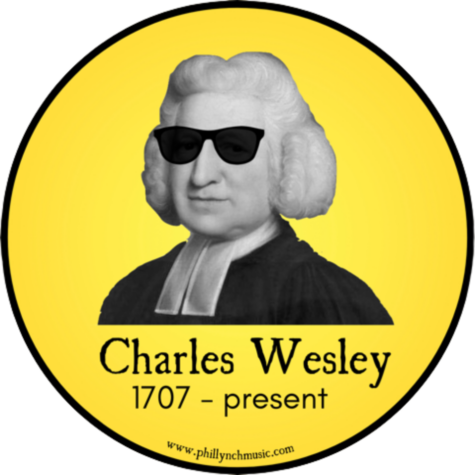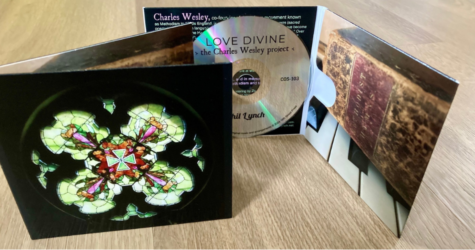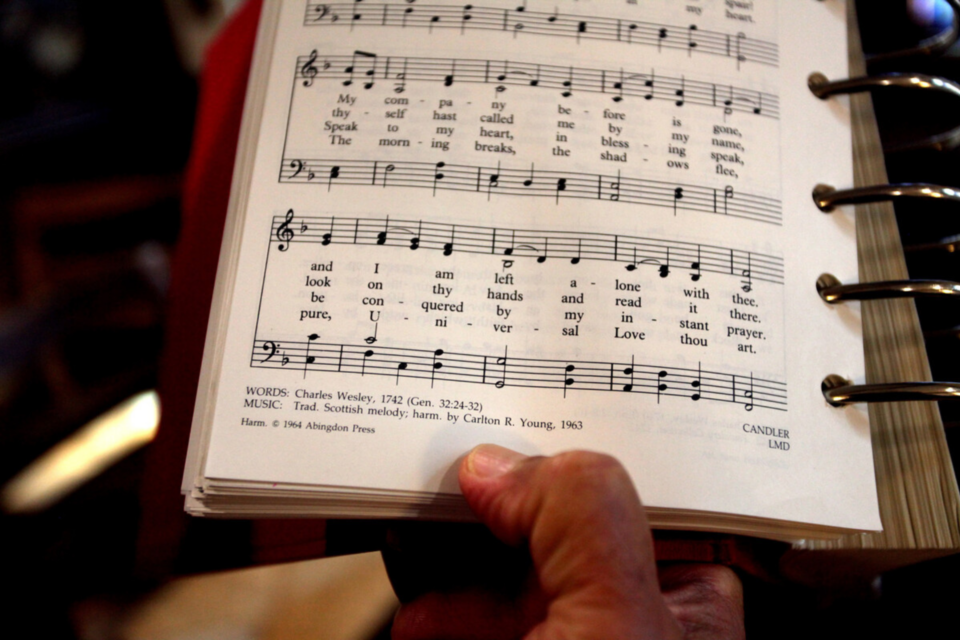Phil Lynch’s new album of Charles Wesley hymns set to new tunes illuminates the doctrine of sanctification, a tenet of Wesleyan theology that he believes our denomination needs right now.
PHIL LYNCH
Escanaba: First UMC
This past October 14, the anniversary of the Wesley brothers setting sail for America, I had the joy of launching a different yet related venture: my third album, Love Divine: The Charles Wesley Project. It’s a collection of Charles’s hymns focusing on sanctification, which I’ve set to new tunes and contemporary arrangements.
Why do such a thing? Why take old — albeit wonderful — sacred poems and set them to new music?
Here’s the short answer: They’re meaningful and bring me closer to the Divine. I also believe they can be a real spiritual help to people and maybe even add life to our beloved United Methodist Church.
I’ve had a lifelong hobby of digging into the poems written by Charles Wesley and looking at the heart of early Methodism. And I’ve found many of his hymns still speak to me today!

Listen closely, and you’ll find they’re hymns about inviting God — or rather, saying yes to God’s desire — to remake you from the inside out. To fully “write thy new name upon my heart, thy new, best name of Love”; to “come and dwell in me . . . and bring the glorious liberty from sorrow, fear, and sin.”
In the Wesleyan tradition we’ve been entrusted with, we know and name this God-initiated transformation as “sanctifying grace”: God’s ongoing offer to release us from our fear and sin and “let us find our rest in thee.” And can’t we all use some rest lately?
Many aspects of the Christian message resonate with me, but this particular facet of the diamond that is Christianity really speaks to and moves me. It is the perspective of being a beloved part of the creation with whom Divine Love — Jesus Christ — wants to be in total communion, not the view of being a sinner in the hands of an angry-but-placated God.
If this theological touchstone found in Charles Wesley’s hymns is a blessing to me, this truth can be so to others, and I want to spread the word. “A charge to keep, I have.”
So, how can these wonderful hymns bless you? God loves us too much to leave us as we are. This is ongoing salvation from self and sin, the “second rest.” This 2,000-year-old orthodox teaching states that God wants to restore us to our original state, the imago dei, imparting the Divine’s very nature to us so that our “every act, word, thought be love.”
You might know that John Wesley considered sanctification — and not justification — “the grand depositum” God had given the people called Methodists. And that spreading this idea was the main reason “He appeared to have raised us up.”
But you don’t hear about it much anymore, do you?
We often hear about God as a justifier-through-blood or a God who will make things work out great for me. But God as sanctifying, still-active Holy Spirit? God who desires you to be wonderfully in tune with his Divine Word and Love? So that you’re not just a sinner trying to be better, but a new creation, risen with Christ with his name stamped on your heart?

Yeah, not so much.
But isn’t that a wonderful message? And doesn’t it resonate with the current times, when so many contemporary people are either opposed to Christianity or just functionally agnostic?
What if we shared this message: “You’re not ready to believe in a being who sacrifices himself for sins that you don’t believe are sins? Try this: God is Spirit. You can be united with the Divine and fully in tune with the love which binds all things together in perfect unity, in whom we live and move and have our being!”
In my non-music career, I spent 30 years teaching young people. From my experience, sanctification is a far more accessible, believable “front porch” to the Christian faith for those who don’t really “do” sin. Not to deny the atonement. People desperately need this message: new, abundant life in Christ. Not presenting it in a way that speaks to them is simply unloving.
Finally, focusing on this powerful, life-altering Wesleyan distinctive might be a kick in the pants our denomination needs. Or to put it in more genteel language, focusing on sanctification could be a source of rejuvenating energy and purpose.
If The United Methodist Church is to have a long-term future, it needs to be something distinctive again. These songs can help.
Brother John perceived that God’s purpose for creating the people called Methodists was “spreading scriptural holiness over the land.” I like our denomination’s current mission statement of “making disciples of Jesus Christ,” but perhaps something more specific is now called for to give us purpose and identity. Maybe spreading belief in entire sanctification — and guiding people along the path — needs to be a main focus again.

I don’t have delusions of grandeur that this recording project will reform a denomination. But in addition to helping individuals learn and enjoy the lovely theological truth of sanctification, I can’t help but think it would be nice to play a part in rejuvenating the church that’s been my spiritual home since sixth grade when my piano teacher drove me to youth choir practice at Farmington: First UMC.
To slightly misquote John the Evangelist, if the names of all the people who have blessed me within United Methodism were all written down, I suppose the whole world could actually contain the books that would be written. But it would sure take a lot more space than we have here! Through performing and promoting these songs, I hope I can somewhat repay my debt of gratitude and pay forward their example of God’s grace and love.
Phil Lynch’s new album, Love Divine: The Charles Wesley Project, streams on all major platforms. Accompanying liner notes, articles, and signed copies are available at www.lovedivineproject.com. Phil also invites inquiries about his presentations for worship services and workshops. For booking inquiries, visit www.phillynchmusic.com.
Enjoy what you are reading? Click here to subscribe to our MiFaith e-newsletter and receive articles like this one in your inbox each Friday.
Last Updated on February 28, 2025

